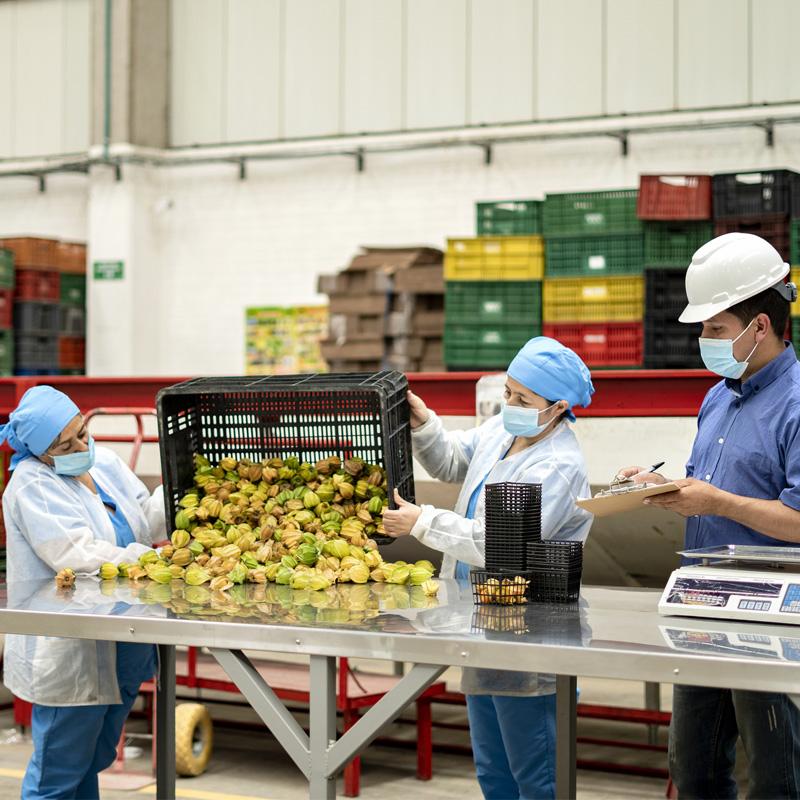In recent years, the UK has witnessed a remarkable resurgence in the biotech sector, positioning itself as a global leader in ground breaking research and innovation.
This surge is reshaping the landscape of life sciences – with a three per cent rise in sites across the UK in 2021 and a recent £1.8 billion investment secured. Recent developments in biotech innovation address some of the world’s most pressing challenges, from human health to environmental degradation, to food security.
Biotech growth in the UK
Scientists are making great leaps in gene-editing technology – heralding a new era of possibilities in enhancing cell research and, ultimately, curing infectious diseases.
One exciting venture is the Synthetic Yeast Genome Project, the creation of synthetic versions of all the organism’s chromosomes. This breakthrough has paved the way for designer yeasts with metabolic pathways tailored to make biofuels from diverse materials.
This example shows the sector has come a long way – creating a strong foothold for innovation. However, challenges will always remain – including the need for robust financial support, world-class research institutions, a vibrant startup ecosystem, and a talented pool of scientists and researchers.
From hubs in the “Golden Triangle” of Cambridge, Oxford and London, biotech startups and established firms alike are leveraging cutting-edge technologies to tackle some of the most pressing challenges in science, creating exciting new job opportunities.
Developing a highly skilled industry
Let’s look at two key job roles needed to continue the sector’s growth.
Molecular biologists, especially those with expertise in cell line engineering, are crucial for the development of robust and reliable cell models that are essential for drug discovery, therapeutic protein production, and understanding complex biological processes. Their ability to manipulate and optimise cell lines can significantly accelerate research and development timelines.
Specialist bioinformaticians play a pivotal role in managing and interpreting the vast amounts of data generated by modern biotechnological processes. Their skills in data analysis, algorithm development, and computational biology are indispensable for translating raw data into meaningful insights, thus driving innovation and progress in the field.
Together, these experts contribute to the cutting-edge advancements that define the biotech industry and are needed to keep businesses on an upward trajectory.
Gene-editing leading the way
At the forefront of this biotech revolution is gene-editing technology, which holds immense promise in curing infections and revolutionising cell research. Nobel prize-winning CRISPR tech, in particular, has emerged as a powerful tool for precisely modifying genes, offering unprecedented opportunities to address genetic diseases and develop new theories around treatment.
Gene-editing’s impact on infection treatment is profound. It offers the potential to drive out persistent viral infections like the aforementioned HIV, presenting new options in the fight to find cures. Its role in combating the Covid-19 pandemic also highlights the versatility and promise of gene-editing as an antiviral modality.
By precisely targeting and disabling viral genes, researchers are paving the way for advanced treatments that could render once-deadly infections manageable or even curable.
The power of investment
While the potential of gene-editing technology and other biotech innovations is undeniable, the discussion will once again turn to investment to keep advancing research. As the boundaries of scientific innovation are pushed, extensive life sciences funding can drive several positive outcomes, including:
Research and development: increased investment enables biotech companies to accelerate their research and development efforts. Scientists can explore novel therapies, diagnostics, and technologies that address critical health and environmental challenges.
Clinical trials: funding supports clinical trials, allowing promising treatments to advance from the lab to real-world applications. These trials are essential for validating safety and effectiveness.
Job creation: a thriving biotech sector creates jobs across various disciplines, including research, manufacturing, engineering, and product development. Employment opportunities contribute to economic stability.
It’s worth noting that once investment is secured, there needs to be substantial collaboration between academics, industry leaders, and personnel at regulatory bodies to help steer towards scientific breakthroughs, economic prosperity, and global influence.
Looking ahead
The UK’s commitment to R&D, exemplified by its goal to increase spending to 2.4% by 2027, promises to overcome any hurdles and maintain its position at a global leader in the biotech sector.
The February announcement that £100m in public funding for six new Engineering Biology Mission Hubs, alongside the recommitment to engineering biology as a strategic priority under the UK’s Science and Technology Framework, are both important vehicles to help biotech companies reach their potential.
Harnessing the collective expertise and skill of the biotech community could lead to an opportunity to redefine cell research and provide universal access to life-saving treatments. This means that policymakers hoping to boost the biotech industry need to listen to the wants and needs of the sector, including the importance of R&D tax credits for research-intensive startups, the ongoing availability of patient capital, and the need for funding and facilities that can be scaled up when necessary.
As the sector continues to grow and evolve – McKinsey believes the direct annual global impact of the ‘biorevolution’ will be worth $2 trillion to $4 trillion by 2030-40 – it will undoubtedly play a pivotal role in shaping the future of scientific research.
Looking for your next hire or considering your next career move in the scientific space? Contact our specialist consultants today.




